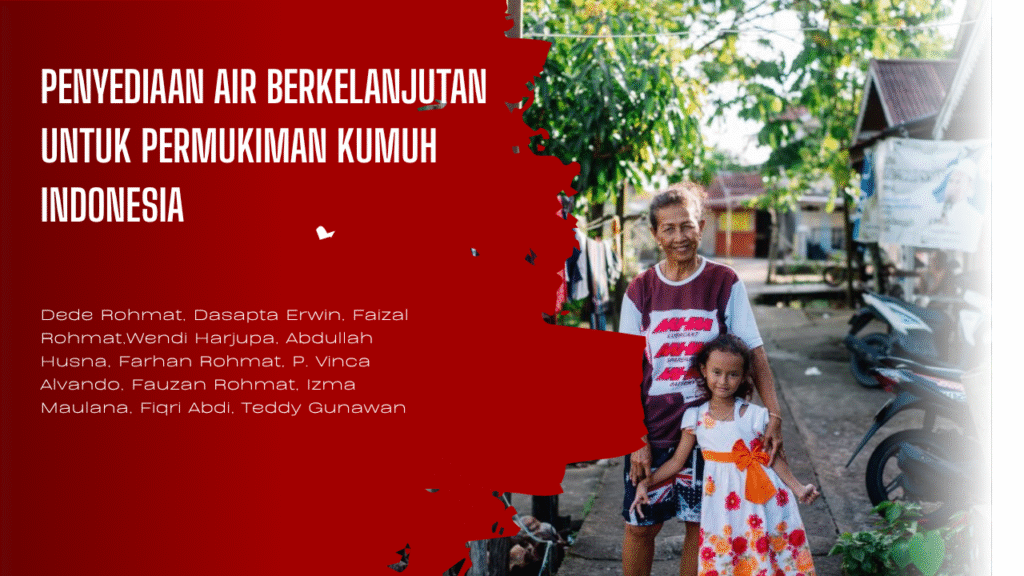Abstrak
Rapid urbanization has led to an increase in urban slums, which are densely populated but lack basic services such as clean water and sanitation. Slums, often located along rivers, are vulnerable to disasters such as floods and landslides, which have a significant impact on their well-being. However, these issues are often overlooked in national and local planning. The cities of Manado, Pontianak, and Bima face similar issues related to flood risk, socio-economic conditions, and urbanization, with clean water infrastructure that does not optimally serve the community, especially in slums.
To maintain the availability of clean water, sustainable water management with ecohydrology principles is needed, such as rainwater harvesting facilities and rainwater conversion systems into clean water. Controlling urbanization should be done with regulations and law enforcement, as well as further studies on water supply and sanitation tariffs and residents’ willingness to pay for them. High technology, such as digital water management, can be optimized for water supply at various scales.
This book aims to profile water supply in slum neighborhoods in the three cities. It is expected to contribute to inclusive and participatory urban planning to improve the quality of public spaces and urban environments in slums.


